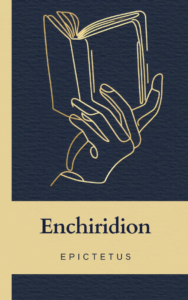
It seems like everywhere you turn these days, there’s a new self-help book on shelves promising to solve all your problems through the ancient philosophy of stoicism. While modern adaptations aim to make stoic teachings accessible, I’ve found you don’t need to look any further than the original sources to find wisdom that remains profoundly relevant.
What Is Stoicism?
At its core, stoicism teaches us to distinguish between what is within our control and what is not. We cannot control external events, other people’s behaviors, or the outcome of things outside our power. However, we do have control over our own judgments, choices, and the focus of our will.
Stoicism emphasizes living in accordance with nature and accepting life’s difficulties as natural parts of existence. Rather than fighting against pain, loss or turmoil, a stoic learns to allow things to be as they are while maintaining peace of mind. This involves exercising virtue – principally wisdom, justice, courage and temperance.
Stoics believe we should feel passions but not be ruled by them. Strong emotional reactions are to be avoided, as they signify our unhealthy attachment to externals beyond our command. The goal is to respond to life rationally and dispassionately according to what is virtuous, not what produces fleeting feelings of pleasure or avoidance of pain.
Stoicism Is Mainstream Now?
Like many, my curiosity in stoicism was first piqued by a handful of bestsellers published within the last decade. I was drawn to the ideas of maintaining inner peace through accepting what you cannot change and focusing on virtues like courage, justice and temperance. Yet as I read summaries and discussions online, I got the sense I was mostly getting watered-down versions or selected highlights repackaged for modern readers. Nothing felt quite as rich or compelling as what was promised on the covers.
I began to wonder – what if I just went straight to the stoic authors themselves? After all, these were philosophers not just thinking about stoicism, but developing it into a practical daily discipline over centuries of practice. Their words were original, not derivative works, and surely conveyed the depth of their insights and experiences more fully. So I picked up my copy of Marcus Aurelius’ Meditations and dug in, hoping for a more immersive experience than what trendy lifestyle books offered.
Why Not Read About Stocism From The Source
From the very first pages, I recognized this was no ordinary book, even accounting for the differences in language and context of the time. Where summaries tended to reduce stoicism to a checklist of virtues and thought exercises, Meditations read like an intimate journal of one man’s journey in grappling with life’s endless uncertainties and finding purpose through choosing wisdom over anxiety. Marcus was clearly writing not just to enlighten others, but to work through his own inner conflicts and disappointments as Emperor in a turbulent era. His piercing observations and reminder to focus on living well and with compassion for others left a much deeper impression than any self-help manual possibly could.
Similar surprises awaited in the Discourses of Epictetus and the Letters of Seneca. Though writing centuries ago in vastly different social contexts than our own, the daily challenges and emotions they addressed proved universal. Whether dealing with loss, overcoming indifference, or cultivating gratitude, their advice cuts straight through to what really matters without technical jargon or filler. Just simple, eloquent guidance on living with presence, resilience and grace that has inspired generations since.
It’s clear to me now that while modern applications of stoicism can introduce beneficial ideas, the original philosophers themselves offer so much more – not just wisdom but fellowship across the divide of eras. In their words I find comfort, even when facing life’s hardest days, that human nature remains fundamentally unchanged and we all seek the same happiness. Rather than another interpretation of stoicism, why not go to the source where it was first articulated with such care, courage and humanity? The classics truly are timeless, as vibrant today for sorting our thoughts as when they were written long ago.
While pop culture brings philosophies to the mainstream, sometimes opening an old book is the best way to discover what has endured. The stoic texts continue instructing generations not because they’re antiquated relics, but precisely because their perspectives on living well translate across centuries. I’m glad I took the journey to the origins of stoicism and would recommend others do the same if interested in deepening their practice beyond surface lessons. The past, as always, offers much to learn when we’re willing to step back in time.
Where To Read About Stoic Philosophy
Epictetus and Aurelius offer perhaps the richest and simplest grounding in stoic philosophy. Both philosophers expounded on stoic teachings through their direct experiences and lessons learned. While modern adaptations aim to distill certain principles, the classics provide fuller context and insights into living according to stoic virtues.
Download Epictetus Discourses For Free

Epictetus’ Discourses, compiled by his student Arrian, allow readers an intimate look into the philosopher’s teachings on accepting externals beyond our control, focusing inward on improving our own character, and cultivating peace of mind through aligning our actions with nature. Rather than theoretical discussions, we join Epictetus as he responds to real questions from his students, applying stoic doctrines to daily challenges around health, relationships and handling difficult emotions. His clear, pragmatic guidance is a model for mental resilience that retains potency even centuries later.
Get Meditations By Marcus Aurelius To Download Free

Similarly, Marcus Aurelius’ Meditations offer an unvarnished window into applying stoicism as emperor and leader. Written as a private journal rather than a philosophical treatise, it carries the intimacy of a man committed to living honorably according to nature’s laws despite immense responsibilities and turmoil all around. The meditations move beyond abstract ideas into Marcus’ own soul-searching – reminding us that wisdom comes from continuously questioning ourselves with compassion. Few modern tracts on stoicism replicate this profound blend of theory merged with candid reflections from an exemplary life.
While popularizations serve an important role of introducing timeless philosophies, the original texts invite a depth of engagement absent from summaries and quick soundbites. In Epictetus and Aurelius especially, we commune with thinkers articulating stoicism not for entertainment or self-improvement alone, but from a place of shared humanity. Their works cultivate an experience rather than simply informing the mind – an experience that nourishes the soul and stays with us through repeated readings over a lifetime.
